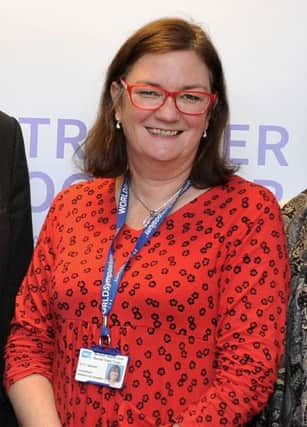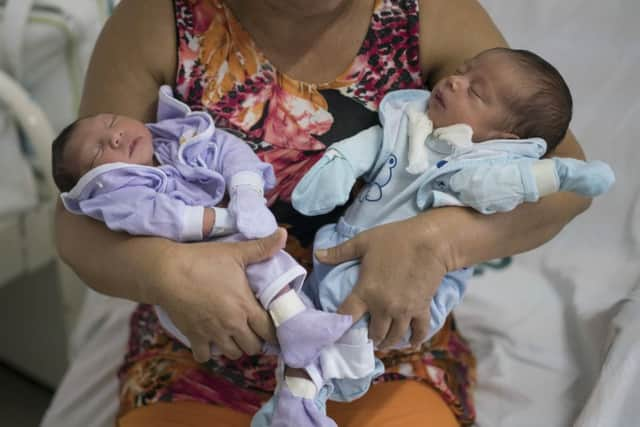'˜We'd have no idea if Zika happened'


Fiona Stewart, Consultant in Medical Genetics said Northern Ireland was now one of the only countries in Europe with no Congenital Anomaly Register, which would involve records being kept when children are born with serious health conditions or defects.
Dr Stewart, who has been hosting clinics for patients with rare diseases at Altnagelvin for over 20 years, was speaking at the launch of the first ever cross-border Rare Disease Partnership group specific to the north west.
Advertisement
Hide AdAdvertisement
Hide AdSpeaking during the launch at the Western Health Trust headquarters at Altnagelvin, Dr Stewart said that rare disease has been the centre of her life’s work, but that attracting funding for this sector of health has proved difficult in the past.


She said: “We were kind of like the Cinderella of medical disorders. And yet, while each individual rare disease is quite rare, as a group they are massive. Rare Disease UK say one in 17 people has their life impacted by a rare disease, either in themselves or in a close family member.”
Dr Stewart said that in recent times the European Union had changed the ball game by putting out a Rare Disease Directive, which forced governments across all member states to “big up their rare disease strategies, policies and set up”. As a direct result of this, new UK-wide and Northern Ireland- specific strategies have been drawn up and will be launched in the coming weeks, she said.
“Plans are a bit like shopping list. All the groups need to be thinking about what are the biggies we need to get right? One thing I was thinking about that we don’t have here is a Congenital Anomaly Register. Almost every other European country has a Register, where if a child is born or a child is found early in life to have something wrong with them it is recorded on a National Registry, so at any moment in time, if I was in Rome and wanted to know, ‘What is the number of our tracheoesophageal puncture?’ I could press a button and go nope, they are exactly the same as last year. We can’t do that.
Advertisement
Hide AdAdvertisement
Hide Ad“What is quite embarrassing, is that the European Register, Eurocat, is based in Northern Ireland,” she added. “I can’t contribute any of Northern Ireland’s data to it because we don’t have a Register here, and one thing I think that should sharpen everybody’s mind is the Zika outbreak in Brazil.


“Some of you will have seen it on the television, it’s an unbelievable tragedy, these microcephaly children, and they are nothing like the microcephaly children we see here. They are a whole, whole different ball game; they are very, very profoundly affected.
“Brazil actually has a fantastic system for gathering this data, so when they say to them, what’s their microcephaly like they said, ‘Oh my goodness look at this!’ We couldn’t do that and I think we should think about that very carefully, that if anything like that happened here, we would have no idea,” she added.
The Zika virus is spread by a type of mosquito, and is believed to have caused microcephaly in thousands of newborn children across South America. The World Health Organisation last week announced a raft of further measures to try and contain the spread of the virus.